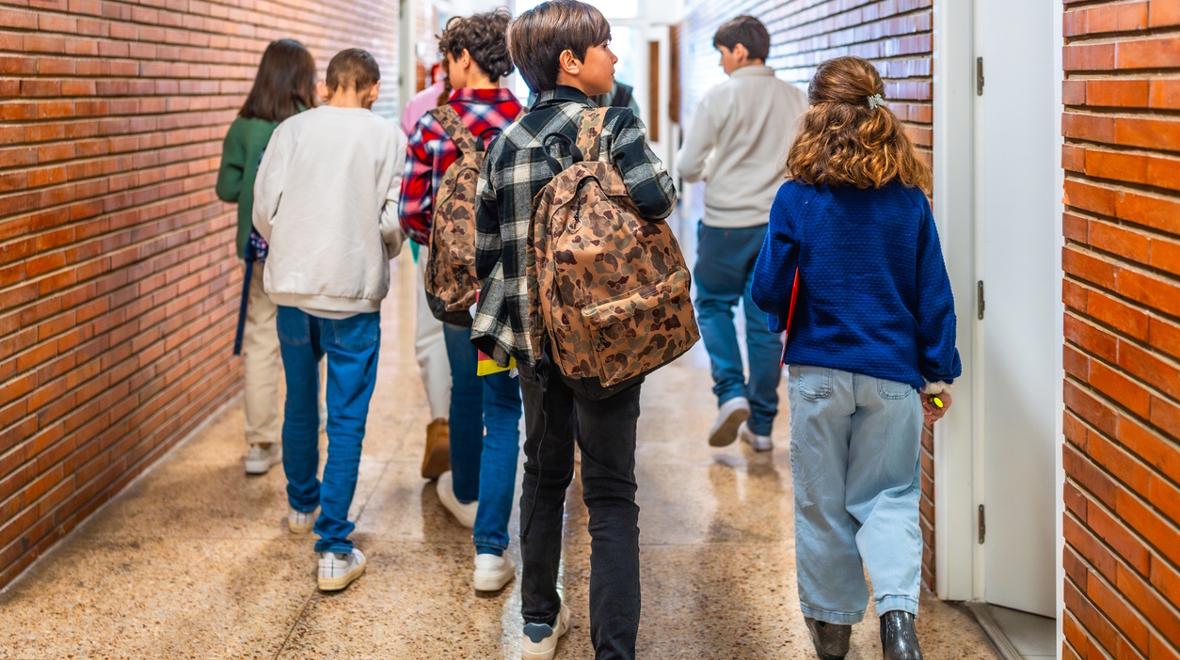
Photo:
iStock
A version of this article originally appeared on StopHateInSchools.org.
Editor's note: ParentMap publishes articles, op-eds and essays by people of all experiences and from all walks of life. The opinions expressed in their articles are their own and are not endorsed by ParentMap.
Imagine your child’s school day interrupted — not for a field trip or a special enrichment class — but for off-campus Bible study. Across the country, a little-known practice called Released Time for Religious Instruction (RTRI) is expanding, and many parents and educators are raising concerns about its impact on public education.
One of the most aggressive promoters of RTRI, LifeWise Academy, is an Ohio-based program that offers “nondenominational Bible education” to public school students during regular school hours. While proponents argue that RTRI is both legal and voluntary, critics warn that these programs can disrupt learning, foster exclusion and quietly push a rigid religious agenda.
Stop Hate in Schools sat down with Jennifer Phillips McLellan, co-founder of Respect Public Schools – Washington, a grassroots group dedicated to defending secular public education, to break down what RTRI is, how it works and what parents can do to protect their schools.
What is released time for religious instruction?
RTRI traces its roots back to a 1952 U.S. Supreme Court case, Zorach v. Clauson, which allowed public school students to leave campus during the school day for religious instruction — as long as strict conditions are met:
- Participation must be opt-in, with written parental consent
- Instruction must take place off school property
- No public funds can be used
- Religious instruction cannot interrupt core academic subjects
- Schools must remain neutral and not promote the program
“LifeWise claims to follow the law, but in practice, many programs violate them with seeming impunity,” says Phillips McLellan. She points to documented cases where teachers, principals and even superintendents have promoted LifeWise programs directly to students and parents. In some schools, RTRI pulls children out of classes like art, music or PE, leaving behind fewer than 25 percent of students — who often aren’t taught at all, but instead sit through study halls, even in elementary school.
Even lunchtime has been affected. “In some schools,” Phillips McLellan notes, “LifeWise students are served lunch first, while non-participating students are forced to wait.”
In some schools, up to 75 percent of students leave class every week for religious instruction.
How LifeWise works
LifeWise typically enters communities quietly: first collecting 100 local signatures before approaching school officials — often implying that schools are legally obligated to allow them in.
“Many schools don’t realize they can say no,” Phillips McLellan explains. “They have absolutely no duty to allow RTRI programs to operate in Washington school districts.”
LifeWise often targets Title I schools — those serving large numbers of low-income families — offering enticing perks such as snacks, pizza parties and even free lunch. These incentives can be powerful in under-resourced communities.
Once launched, RTRI programs frame participation as “normal,” making students and parents feel pressured to join. In some schools, up to 75 percent of students leave class every week for religious instruction.
What’s at stake for students and schools
For students who don’t participate, RTRI can create a deeply isolating experience. In Ohio, for example, students are often shuffled into “study halls” instead of receiving regular instruction, and some even report being bullied for not joining the religious group. In Washington, students are missing key social emotional learning and down time with their peers for lunch and recess, disregarding Washington state law that requires 30 minutes of recess every day.
“These programs disrupt the entire rhythm of the school day,” says Phillips McLellan. “Teachers are forced to rearrange lesson plans, or address proselytizing during a time of learning. Front office staff must manage the complicated logistics of check-ins and check-outs of dozens of students all at once. And worst of all, children who stay behind often feel left out or ostracized.”
The concerns don’t end there. “LifeWise’s curriculum promotes an anti-LGBTQIA+ worldview,” adds Phillips McLellan. “They believe that the only ‘righteous’ family has a mother and father married to each other. No single parents, gay parents, foster parents or grandparents are ‘good’ families. And they even encourage children not to follow their parents’ instructions, if their parents are deemed sinners against God.”
RTRI programs also raise important questions about safety (Who is responsible if a child is injured off campus?), accountability (Are RTRI staff subject to the same background checks as public school employees?) and equity (Are non-religious and minority-faith students being marginalized or left out?).
Spotlight on Washington state
LifeWise recently launched its first RTRI program at an elementary school in the Everett School District, with additional programs being developed in Aberdeen, Bothell, Edmonds and Gig Harbor. Other districts, like Monroe and Mukilteo, are reportedly not far behind.
Concerned families can track where programs are active or proposed using Respect Public School’s real-time tracking map.
What parents can do
If you’re concerned about RTRI in your school or district, Phillips McLellan emphasizes that parents have real power to make a difference. Here’s how you can get involved:
Get informed
- Check your school district’s website or contact your principal to learn if RTRI programs are being considered or implemented.
- Use the LifeWise tracker at Respect Public Schools’ website to monitor your school’s zip code.
Speak up
- Write to your school board members, principal and state legislators to voice your concerns.
- Share information in local newspapers, social media and community forums to raise awareness.
Push for policy
- Advocate for your district to adopt a formal RTRI policy — even if no programs are currently operating.
- Secular Education Association (formerly Parents Against LifeWise) offers a model RTRI policy you can propose. It’s already gaining traction in several Ohio districts after new state regulations were introduced in December 2024.
Connect with others
- Join groups like Respect Public Schools – Washington to find support, resources and strategies.
- Collaborate with other parents and educators to protect inclusive, secular education.
Bottom line
While RTRI is legal under narrow conditions, the rapid growth and questionable practices of programs such as LifeWise raise serious concerns for families nationwide. If you value a robust, inclusive, and secular public education, now is the time to get informed, get involved and make your voice heard.
About: Stop Hate in Schools is a Seattle-based not for profit that tracks and reports on anti-Jewish bias and harm in K–12 schools and promotes safe and inclusive learning environments that are free from discrimination and hate for all students. Learn more at stophateinschools.org.









